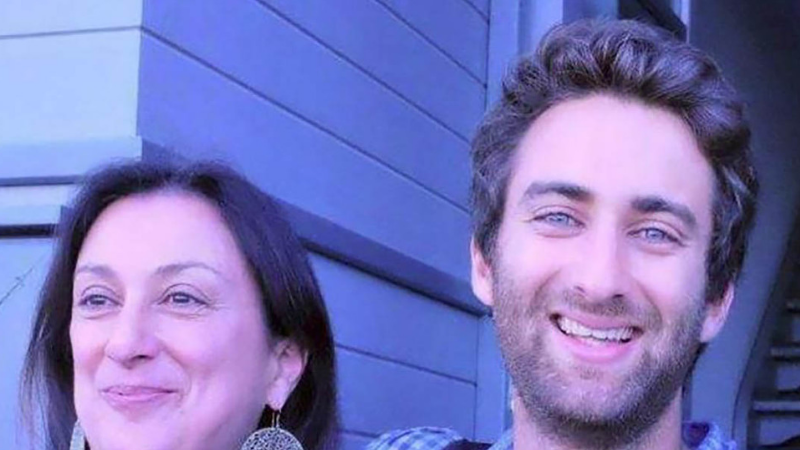Revelations on the Electrogas project were interrupted by the brutal assassination of journalist Daphne Caruana Galizia, her son Matthew told the court on Thursday morning.
Testifying before magistrate Rachel Montebello, Caruana Galizia revealed the contents of emails that his mother had received in 2017 that shed light on the financial problems faced by Electrogas. The emails the witness referred to form part of a leak covering a long period, including the initial phases of the project.
Caruana Galizia said that these emails confirm that Fenech was the ‘key person’ involved in the project. “Decisions were taken by him [Fenech]. He would be contacted when they needed a favour from Konrad Mizzi or the Prime Minister. They always went to Yorgen.”
That is why, Caruana Galizia explained, that together with his mother they directed their investigations on him. Daphne Caruana Galizia was brutally assassinated by a car bomb placed in her car on 16 October 2017. Yorgen Fenech is accused of commissioning her death.
Matthew Caruana Galizia referred to an email from Electrogas commercial director Catherine Halpin to Fenech in which she says that investors were very worried as the banks were getting nervous. Another email even showed that the banks were not interested in financing the deal.
An email exchange between two employees on the day of the murder makes reference to Yorgen Fenech being sick.
It was also confirmed that Fenech had planned to replicate the Electrogas project in Bangladesh with a 30% interest in the project, as revealed by The Shift. “This shows that Fenech was planning to go behind the back of the other partners. None of the other Electrogas shareholders had a stake in it,” Caruana Galizia told the court.
His mother’s investigations were halted when she was assassinated. Following the murder, her son passed on the information to a trusted journalist as a precaution just in case something happened to him.
During the same sitting, chief inspector Keith Arnaud revealed that Fenech was made privy to the wording of the presidential pardon for middleman Melvin Theuma. He told the court that an image was found on Fenech’s phone showing the presidential pardon that Theuma negotiated to tell all on the murder.
Arnaud could not confirm whether it was Keith Schembri who leaked the details of the pardon. The former chief of staff had rejected the claim but his phone has not yet been found.
The police believed that Fenech was planning to flee Malta shortly before his arrest in November 2019, Arnaud told the court. He confirmed that Fenech had told a relative to care for his children as he had a plan to travel overland from Italy and a message telling him not to make use of his credit card overseas.
Fenech was also considering leaving the country through a private flight. A message revealed that the suspected mastermind had asked the airport CEO if he could leave the country ‘discreetly’. The CEO said this was not possible.
As the arrest was looming closer, Fenech appealed to the former OPM Chief of Staff Keith Schembri not to leave him alone.
The police inspector also told the court that disgraced Prime Minister Joseph Muscat had set up a Whatsapp group with Schembri and Fenech. The group was set up two days after the alleged hitmen were arrested in December 2017.
He referred to a message in Fenech’s phone saying, “we need to talk, you, me and k”. This was before Muscat’s birthday party at Girgenti.













